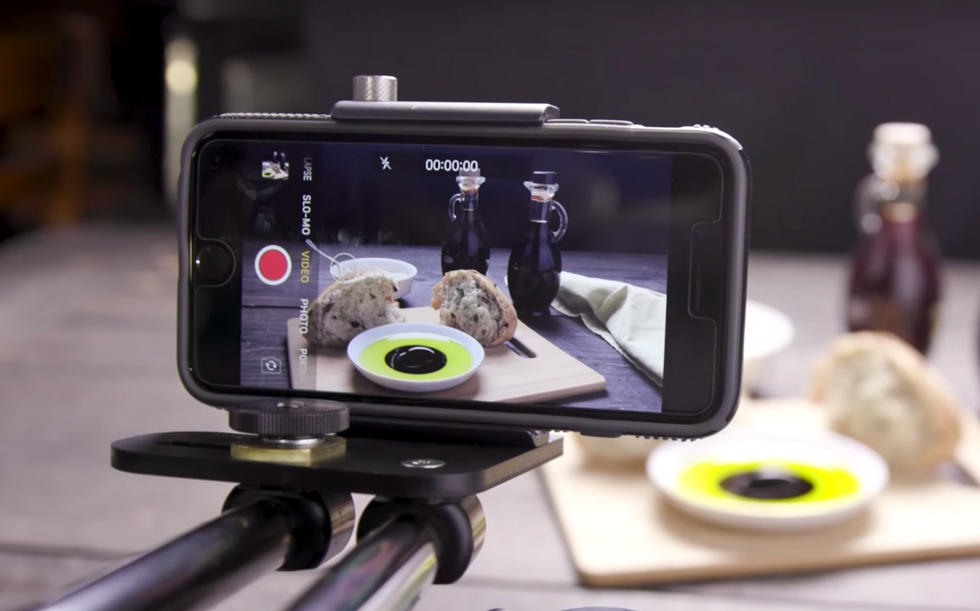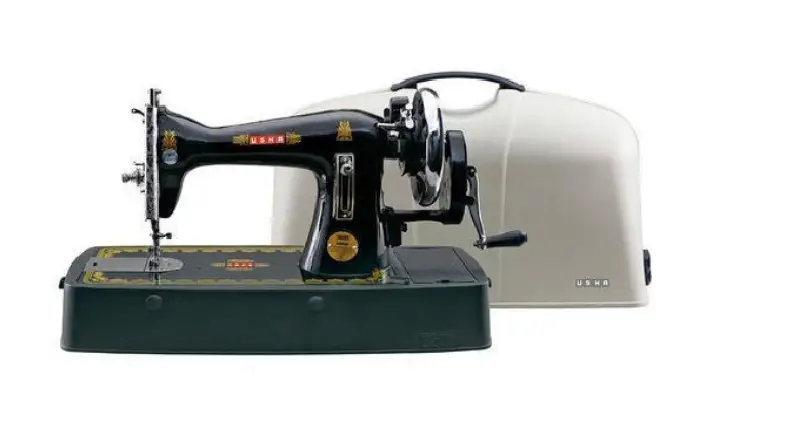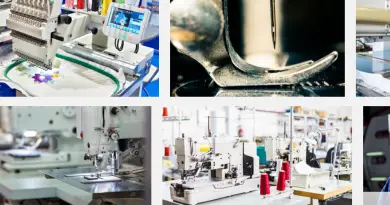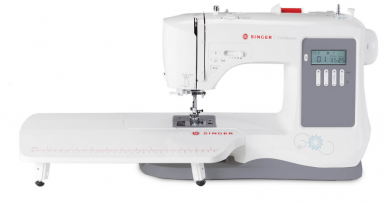Manual Sewing Machine Price in Nigeria 2024
If you’re reading this, it probably means you are curious about manual sewing machines.
Well, if you are, then you’re already reading what you need.
Yes, the tempting gaze of an electric sewing machine is highly coveted, but the reality in Nigeria has slightly different things to offer.
Unlike most countries where modernized sewing machines are mainstream, the popular preference in Nigeria remains the older and less fancy manual machines.
Plagued by high prices and Nigeria’s age-old problem of epileptic power supply, the reasons to buy an electric sewing machine just isn’t enough to sprout adequate motivation.
Most local fashion artisans stand better chances at greater productivity with the good old manual sewing machines. This means, rather than dwindle sharply, the market for manual sewing machines in the country keeps experiencing a marginal increase.
Quick Navigation
Do you own a business? Do you want to own a business?

Hot New Exclusive Training By A Professional Videographer Reveals 7 Amazing Secrets of Creating Stunning Product Videos That Can Make Huge Profits for Any Business in Nigeria...Using Just Your Smartphone!
YES, I WANT ACCESS TO THE EXCLUSIVE TRAINING FOR FREEShopping for the Best Manual Sewing Machine in Nigeria
The difference between buying a great sewing machine and a not so great one usually lies in the most seemingly trivial of details.
Irrespective of whether it’s a manual model or not, one important feature to look out for in a sewing machine is what it is made of. There’s a correlation between the quality and durability of a manual sewing machine and whether its parts are made of metal or plastic.
There are different easy ways to figure out whether a manual sewing machine part is made of metal or plastic. One way is to check the weight of the machine; a considerably lighter machine means it’s made of plastic just as those made of metal are slightly heavier.
Another way to tell is to check if the bobbin hook is made of plastic or not. Plastic bobbin hooks are known to break much easier than those made of metal.
You’ll also need to consider, to a great extent, the brand of the sewing machine. While there is a probably long list of good sewing machine brands, there are some brands with exceptionally cool records of durability. Look for the Singer, Janome, Butterfly, or Brother brand when shopping for a manual sewing machine.
Cost of Manual Sewing Machines in Nigeria
For most tailors in the country, buying an electric sewing machine – with no electric power to run – isn’t really a smart thing to do. This means, the tested and trusted manual machines remain the top choice locally.
Below I’ve compiled a comprehensive list of prices of hand sewing machines in Nigeria and their prices.
- Butterfly Sewing Machine – Automatic and Manual – ₦36,000 to ₦45,800
- Butterfly Overlock Sewing Machine-GN1 113D – ₦27,000 to ₦30,000
- Butterfly Zig Zag Sewing Machine – JH8190 – ₦42,000 to ₦55,000
- Butterfly Long Table Folding Sewing Machine Manual and Automatic – ₦40,000 to ₦48,500
- Butterfly Zig Zag and Straight Sewing Machine (JH8190S) – ₦40,000 to ₦42,000
- Butterfly Short Table Sewing Machine – ₦37,000 to ₦38,500
- Butterfly Sewing Machine Plus an Electric Motor – ₦44,000 to ₦39,500
- Butterfly Sewing Machine Head Only – ₦22,000 to ₦23,500
- Butterfly Domestic Sewing Machine – ₦34,000 to ₦40,000
Related
Do you own a business? Do you want to own a business?

Hot New Exclusive Training By A Professional Videographer Reveals 7 Amazing Secrets of Creating Stunning Product Videos That Can Make Huge Profits for Any Business in Nigeria...Using Just Your Smartphone!
YES, I WANT ACCESS TO THE EXCLUSIVE TRAINING FOR FREE- Prices of Electric Sewing Machines in Nigeria
- Shoe Making Machine Costs in Nigeria
- Cost of Sealing Machines in Nigeria
- Prices of Photocopy Machines in Nigeria
- Costs of Butterfly Sewing Machine in Nigeria
- Price List of Popcorn Making Machine Nigeria
Why Choose a Manual Sewing Machine?
Planning to buy a sewing machine is usually an exciting decision, especially if your current machine is a little stricken with old age. While the generally more preferred option may be the electrical and computerized sewing machines, you should definitely consider adding the manual configuration to your wish list for the following reasons.
Easier to operate
If you’re a first-timer, out of practice, or your skills have gotten pretty rusty, my first recommendation would be to go for a mechanical model or manual sewing machine.
When you’re just starting out, it’s pretty easy to get lost in a sea of unfamiliar features and components. The manual model may be more tedious to operate, but it’s quite easy to get used to once you’ve used it a few times over.
Manual sewing machines don’t have all the intricate electronic parts like motherboards, which characterize electric and computerized sewing machines. Only the necessary features are shipped alongside most manual models, making it quite easy to fully understand and operate.
Easier to maintain
Like we all know, with great features come great problems. If you’ve had some form of experience using the legendary (vintage) manual model of Singer sewing machine or any other manual model, you’d easily understand how relatively easy it can be to fix some faults.
However, the opposite seems to be the case with electric and computerized sewing machines. It’s hard enough to deal with their complicated features, having to deal with even the commonest of faults could prove to be herculean some times. To crown it all, finding a technician with competence in repair and maintenance of such models could be a little hard in less developed areas.
Usage without electricity
The most obvious advantage of using manual sewing machines is its electricity-free operation. This can be a particularly huge advantage for a variety of reasons. From self-sufficiency, electricity bill economy to the ability to use them anytime with or without power, manual sewing machines are a huge advantage.
If you reside in Nigeria, you’d quickly discover that one of the greatest limitations to using an electrically powered sewing machine is the lack of electric supply. Nigerian tailors and seamstresses already have an infamous reputation of being late on deliveries. Throw in the issue of being unable to work due to the inadequate power supply and we have a perfect recipe for disaster.
An exceptional workhorse
Manual or mechanical sewing machines are exceptional workhorses. Depending on the brand you get, you can get a serious workhorse that can sew virtually anything you throw at it. Mechanical sewing machines are built for the long haul and can last relatively longer even when handling heavy workloads.
Do you own a business? Do you want to own a business?

Hot New Exclusive Training By A Professional Videographer Reveals 7 Amazing Secrets of Creating Stunning Product Videos That Can Make Huge Profits for Any Business in Nigeria...Using Just Your Smartphone!
YES, I WANT ACCESS TO THE EXCLUSIVE TRAINING FOR FREEBudget friendliness
If you are budget constrained, the most budget-friendly option of any sewing machine remains a mechanical model. From buying a complete manual sewing machine unit to sourcing for spare parts and items, manual machines are substantially cheaper to purchase and maintain.
Although computerized and electric models are shipped with a lot of juicy features, there’s more to it than meets the eye. It’s almost safe to say that most features like buttonholes and built-in stitches that come shipped with computerized sewing machines are rarely used by tailors.
If you are going to be using your machine for small scale jobs or mending clothes at home, then a manual sewing machine will do just fine. There’s really no use in paying for thousands of features you may almost never use.
Compare Other Machine Prices in Nigeria
- Industrial Weaving Machine Price in Nigeria
- Palm Oil Processing Machine Price in Nigeria
- Submersible Pumping Machine Price in Nigeria
- Sewing Machine Prices in Nigeria
- Prices of Electric Sewing Machines in Nigeria
- Groundnut Oil Extraction Machine Price in Nigeria
- Current Price of Industrial Sewing Machines in Nigeria
- Shoe Making Machine Prices in Nigeria
- Prices of Sealing Machines in Nigeria
- Photocopy Machines Price List in Nigeria
- Current Price of Butterfly Sewing Machine in Nigeria
- Popcorn Making Machine Price in Nigeria
- Price of Pure Water Making Machine in Nigeria
- POS Machine Price and Dealers in Nigeria




